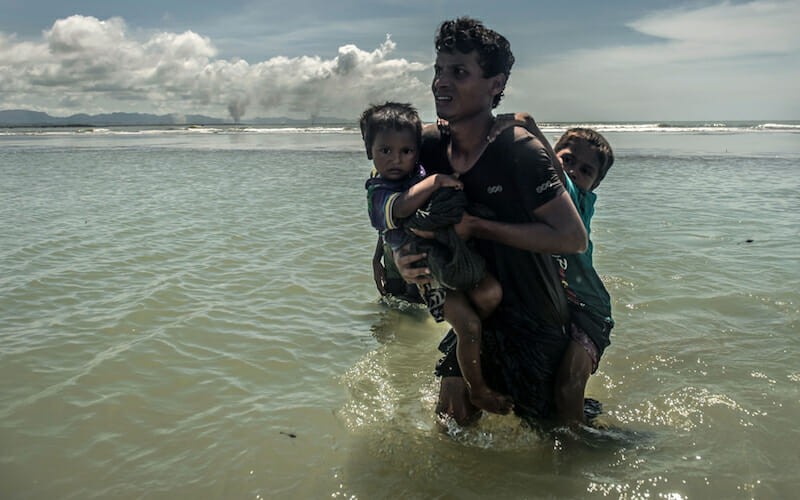
Words, Numbers, and Values: Why an Anti-refugee Stance Doesn’t Add Up
As I read the news last week, I was greeted with the headline, “Gunman opens fire on Las Vegas concert.” My first thought was, “Oh no, please don’t be Muslim.” Although numbers tell you far more Americans have been killed by non-Muslims than Muslims, the word “Muslim” breeds fear. This fear surrounding terrorism and Muslim extremism has led to anti-immigration and anti-refugee sentiment in a time when the need to assist those in dire circumstances could not be greater.
Recently President Trump proposed a refugee cap of 45,000. This is the lowest number ever set by a president since the White House began determining the number of refugees. At the same time, 65.6 million people are forcibly displaced from their homes and countries- the equivalent of the entire population of Texas and California combined.
This is the highest number of refugees since World War II. Fifty-five percent of these refugees have fled Muslim majority countries. The US National Counter Terrorism Center has found Muslims to be the victims of over 80% of terrorist attacks at the hands of Muslim extremists. As these Muslims flee their countries as refugees, they arrive here as the victims of terrorism—not perpetrators. Not a single person has been victim to a refugee terrorist attack in the US. The numbers don’t lie.
America loves giving herself labels. We are the “land of the free, home of the brave,” we’re a “melting pot,” the “leader of the free world.” These words inspire a sense of pride in what we stand for—freedom, equality, justice, democratic ideals, life, liberty and the pursuit of happiness. The plaque at the base of the Statue of Liberty states, “Give me your tired, your poor, your huddled masses yearning to breathe free…” Historically we have lived up to these words. The US is a land of immigrants, a land of refugees. So why in the face of the greatest need are we now doing the least? Why do our actions fail to meet our words and values? The numbers don’t lie.
Perhaps in light of tragedy and crisis domestically and internationally we should reassess what we are protecting when we fight to keep our borders secure. What are we afraid of losing? What defines us? Our right to freedom of speech was not intended to protect hate or discrimination against our fellow Americans. Our right to bear arms does not exist to foster acts of violence against our fellow Americans. These rights we speak of exist to protect our values, not shred them.
The current refugee process simply does not produce a link between terrorists and those who enter the US as refugees. The current refugee crisis is unprecedented in sheer numbers affected and in the humanitarian, economic, and political challenges it creates. In light of this, America must act differently. The White House’s overall resettlement cap should increase not decrease. We should be finding ways to streamline the process for continued security and increased efficiency. We should lead by example and set a precedent for the international community. This leadership provides opportunity. The opportunity to create a united front for a solution to the refugee crisis, to pursue our best interests and security, and also to support our longstanding values.
Our words and the numbers should add up. We take on little risk and great potential benefit when we act on our values and admit refugees like Madeline Albright and Steve Jobs’ father. A refusal to assist individuals fleeing destruction and loss in their quest to start a new life is contrary to our own deeply-held ideals. In the face of tragedy, local and abroad, I hope we, as Americans, rise to the occasion and act as a nation worth protecting.

